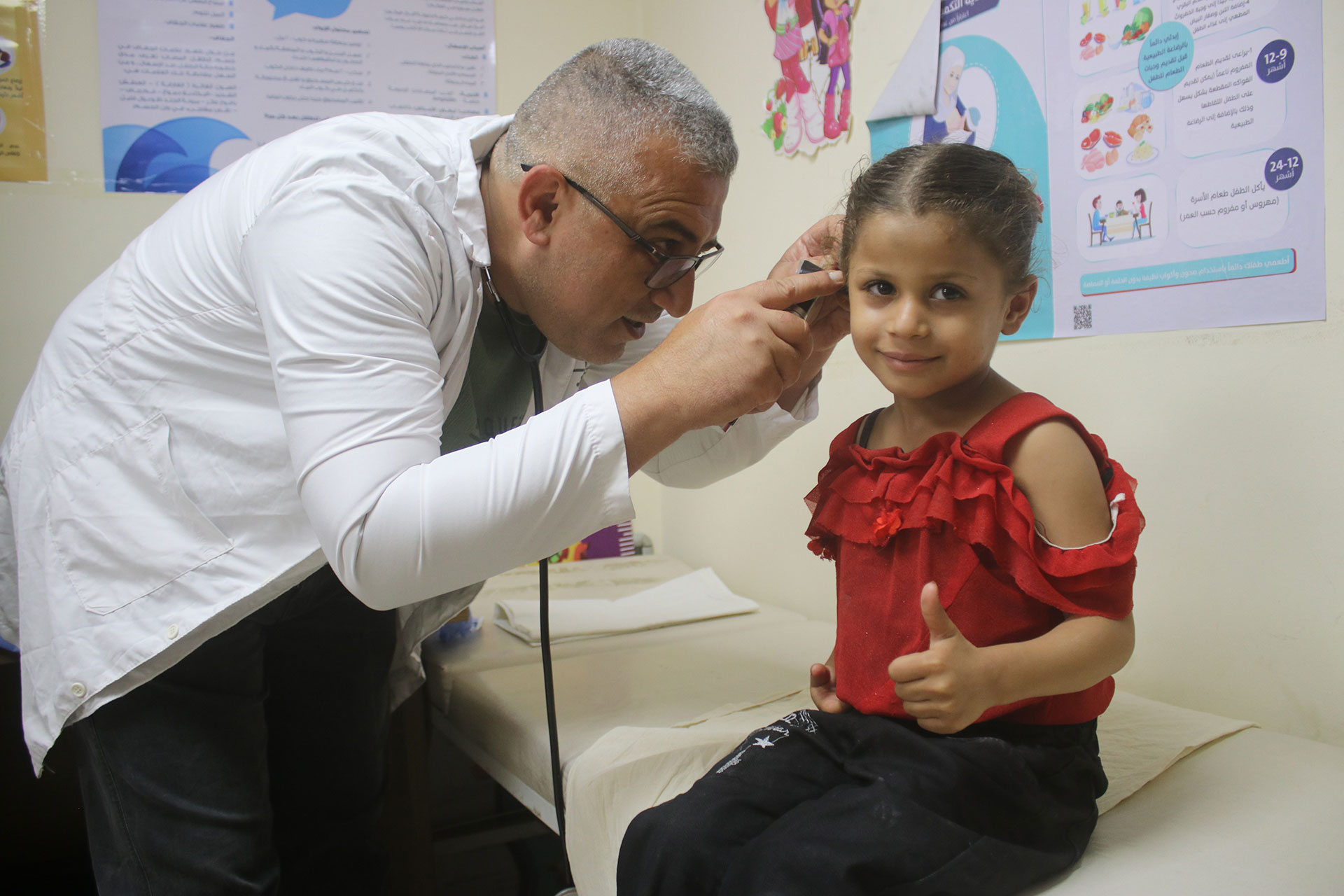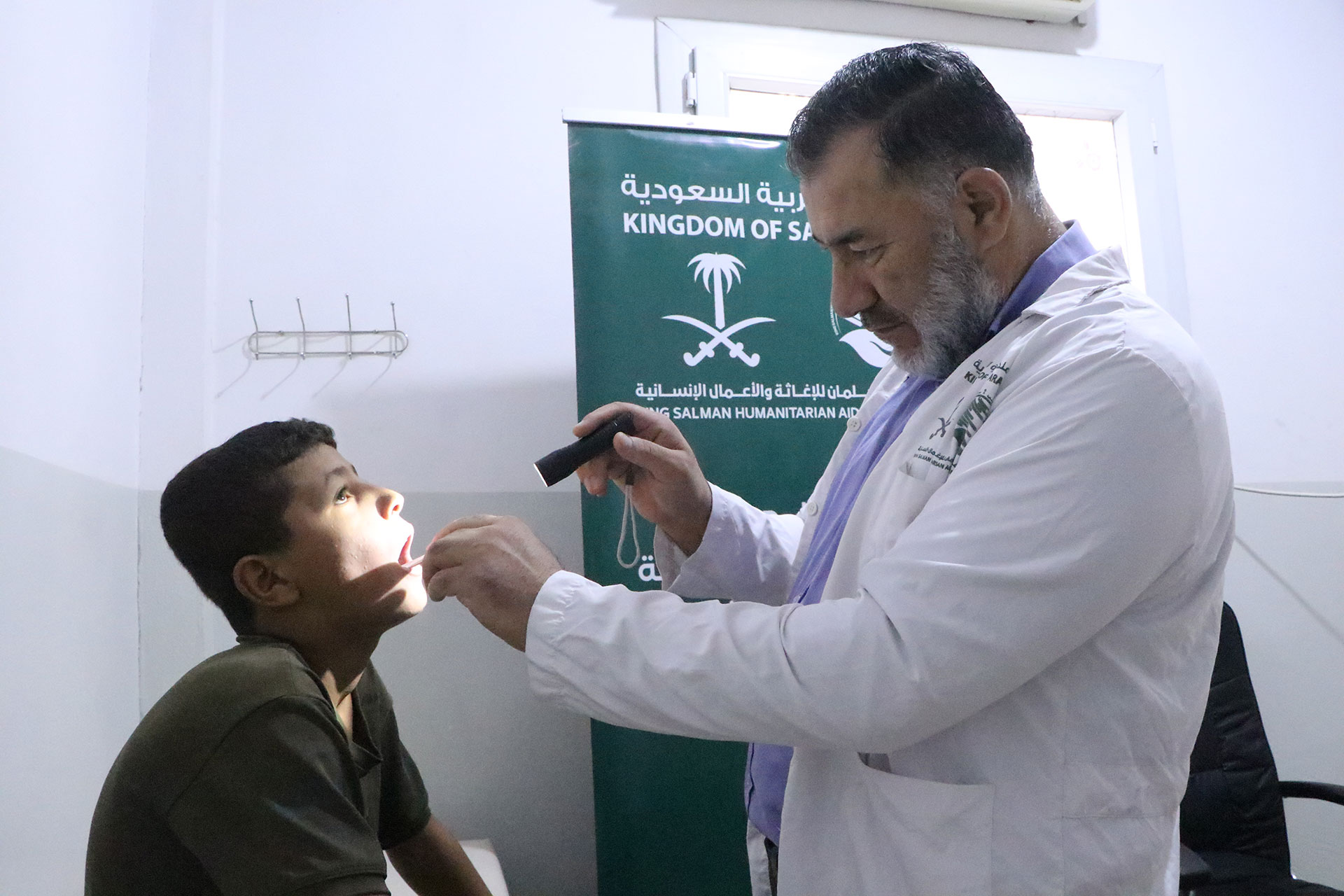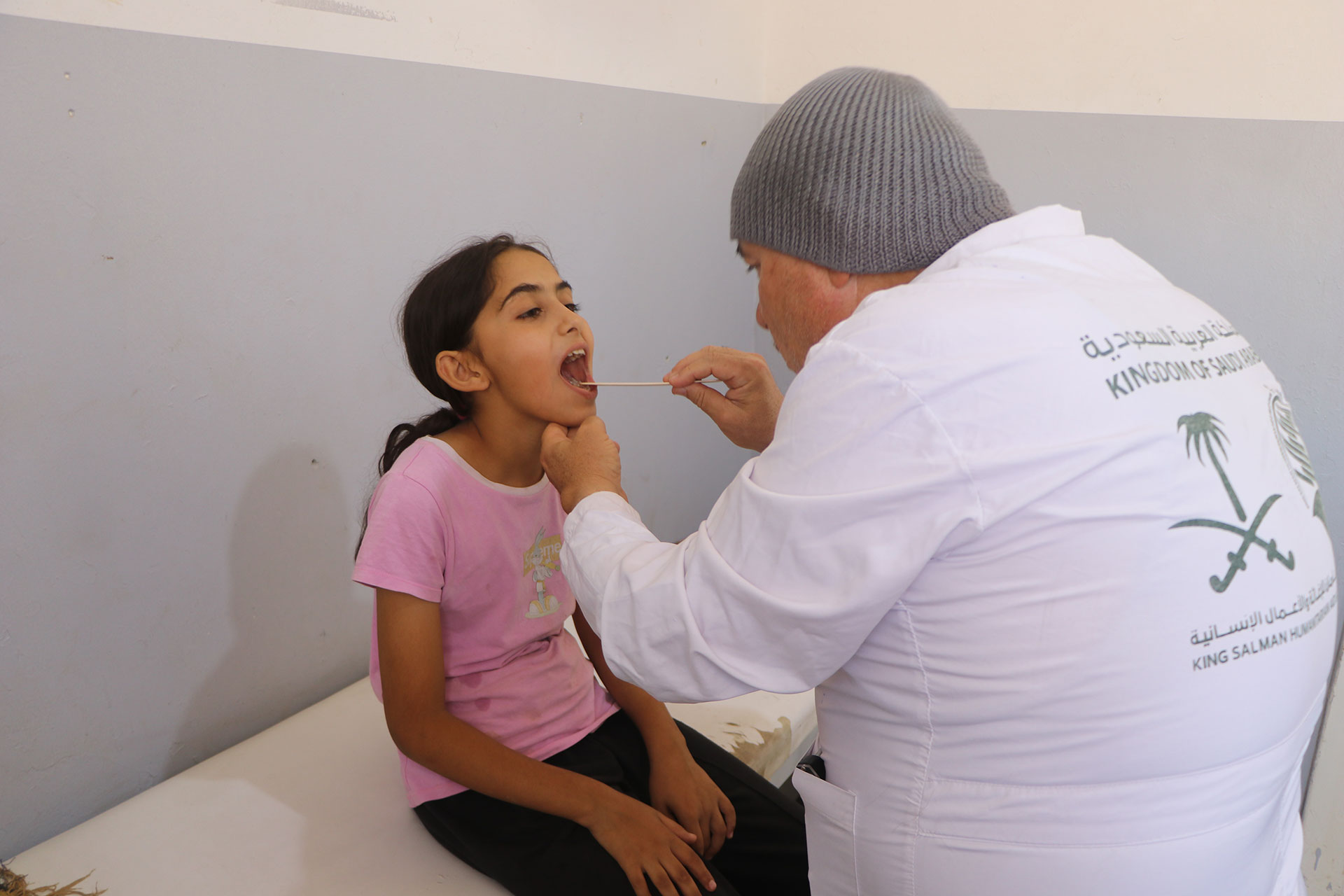25 November 2025, Aleppo, Syrian Arab Republic – Across northern Aleppo, parents often act quickly when their children show signs of illness – whether it begins with ear pain, a sudden fever, a persistent cough or stomach upset. At three different primary health centres, doctors say these early visits are what help them to protect children from conditions that can worsen quickly.
 Dr. Shadwan Mohammed Hindawi examines Nour Ibrahim Al-Hassan during a consultation at the paediatric clinic in Azaz Health Centre. Photo credit: WHO
Dr. Shadwan Mohammed Hindawi examines Nour Ibrahim Al-Hassan during a consultation at the paediatric clinic in Azaz Health Centre. Photo credit: WHO
At Azaz Health Centre, paediatrician Dr. Shadwan Mohammed Hindawi welcomed Nour Ibrahim Al-Hassan, who arrived with ear pain and a high fever. After examining her, he prescribed treatment to ease the infection and guided her mother on how to manage symptoms at home.
“Ear infections start suddenly and they worry parents,” says Dr. Shadwan. “Once we examine the child and explain the treatment, you can see the relief. Early visits help us act before the infection spreads or the fever rises further.”
At Qareh Koubré Health Centre, Mohammad Bilal Al-Qasem was brought in by his father after several days of coughing and chest irritation. Dr. Mustafa Hamdan Kareem assessed his breathing and diagnosed a bronchial infection.
 Dr. Mustafa Hamdan Kareem examines Mohammad Bilal Al-Qasem during a consultation at Qareh Koubré Health Centre in Aleppo. Photo credit: WHO
Dr. Mustafa Hamdan Kareem examines Mohammad Bilal Al-Qasem during a consultation at Qareh Koubré Health Centre in Aleppo. Photo credit: WHO
“We see many children with chest symptoms, especially during seasonal changes,” Dr. Mustafa explains. “Parents often wait to see if it will pass, but checking early helps us treat the inflammation before it becomes more serious. Our aim is always to help a child breathe comfortably again.”
Further east, at Tal Al-Hawa Health Centre, Ei Nour Hussein arrived with vomiting and diarrhoea – symptoms that can lead to dehydration, especially in young children. Dr. Youssef Aboush examined her, checked her hydration status, and provided medication and guidance to her father.
 Ei Nour Hussein is examined by Dr. Youssef Aboush at Tal Al-Hawa Health Centre. Photo credit: WHO
Ei Nour Hussein is examined by Dr. Youssef Aboush at Tal Al-Hawa Health Centre. Photo credit: WHO
Further east, at Tal Al-Hawa Health Centre, Ei Nour Hussein arrived with vomiting and diarrhoea – symptoms that can lead to dehydration, especially in young children. Dr. Youssef Aboush examined her, checked her hydration status, and provided medication and guidance to her father.
“Dehydration can develop fast in children,” says Dr. Youssef. “When a child comes in with vomiting and diarrhoea, our priority is to stabilise them and reassure the family. Simple treatment at the right time can prevent a hospital visit.”
Across Azaz, Qareh Koubré and Tal Al-Hawa, health workers share a common goal: catching illnesses early so children can recover safely at home.
Services at these health centres are delivered in coordination with the Ministry of Health and implemented on the ground through local partners, whose teams make sure that essential care remains available for families with limited options.
Since late 2024, support from the King Salman Humanitarian Aid and Relief Centre (KSrelief) has helped WHO keep 50 health facilities running across Aleppo and Idlib, ensuring that families can access the care they need close to home.








